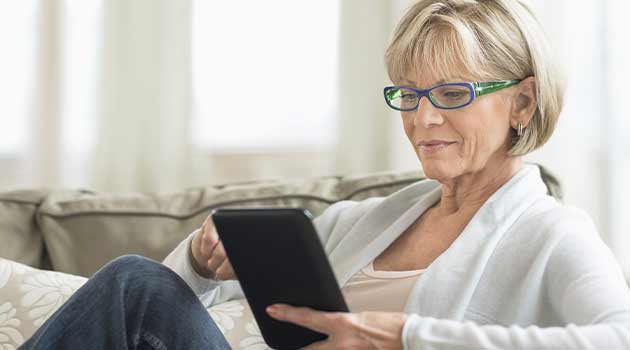Love Spells Caster +27818744558 In Denmark, Netherlands, Malta, Spain, Cyprus, Slovenia, Lithuania

How to avoid loneliness in lockdown for older people

Updated 04/01/21
Although for many it won't be a surprise, the third lockdown that has just been announced for England will be a devastating blow for many families (and businesses) across the country. With so many of us cut off from our family, friends and familiar routines, the emotional toll shouldn't be underestimated. In a survey of our users, 37% said they were concerned about their mental health during lockdown. Feeling lonely is natural, especially if you’re living by yourself. But rest assured, gransnetters have lots of advice on how to cope with isolation during the coronavirus outbreak. And with the long-awaited news of the first person receiving the Oxford-AstraZeneca vaccine, there is certainly light at the end of the tunnel.
We'd love to stay in touch. Sign up to our newsletter here...
Stay in touch
Though it can feel difficult, it’s essential to keep in touch with your wider social network. Ring family and friends to see how they are - now is an important time to look out for each other. You might want to set up WhatApp groups with friends or neighbours. The Gransnet forums are a great place to share advice, support and humour, and make new friends. Don’t forget about old friends too - considering everyone is likely to be stuck at home all day, now is a great time to catch up with friends you haven’t spoken to in years. Every cloud...
If you're worried about your own loneliness with being stuck at home, you can stay in touch with others virtually with our daily newsletter - get it here.
Structure your day
 Experts have advised that a sense of structure is an essential tool for helping stave off loneliness during isolation. Waking and going to sleep at the same time can be helpful for feeling like you have structure.
Experts have advised that a sense of structure is an essential tool for helping stave off loneliness during isolation. Waking and going to sleep at the same time can be helpful for feeling like you have structure.
- Check the news only twice a day at set times - the World Health Organisation has advised that this is a good way to keep on top of anxiety and stress.
- Plan regular phone calls with friends, family or neighbours - this can be essential to creating a sense of purpose and maintaining communities.
- Set a time aside for exercise if you can - getting outside for a walk and some fresh air can help your mental health. If you're unable to leave your home, try to incorporate exercise at home into your daily routine.
- Keep yourself occupied - having a hobby or project that you can progress in can help in creating a sense of purpose to your day. Whether it's a new skill you've been wanting to try or you're keen to rediscover a new favourite, take pleasure in having the time to get round to something you might not otherwise have had time for. From cooking to crafts, puzzles to Pilates, it's important to find something fun to keep you engaged and entertained.
Exercise
If the winter weather or circumstances don't allow for outdoor exercise, don't worry. Many gransnetters have been exercising at home during the pandemic, and have shared their tips for getting the most out of a workout at home. Don't miss them on our guide to self-isolation and exercise, which also includes loads of exercise videos for over 50s that you can try at home.
Don't be on your own - join Gransnet and stay connected with other people like you.
Who's most at risk of social isolation and loneliness
Firstly, if you feel that you are seriously at risk of mental health problems there are several helplines that you can call for emotional support including:
- Samaritans (116 123)
- Silver Line (0800 470 80 90)
Specialist mental health helplines include:
- Rethink (0300 5000 927)
- Mind (0300 123 3393)
Mutual-Aid groups are being set up all around the country too, where local residents organise themselves to help vulnerable people. If you think you could benefit, or that you could help, visit their website for guidance.
If you know someone who you think is at risk, there are some great practical steps you can take. We all know people who need our support. Although it’s harder than usual to make contact with people who need it, it can still be done. Now is a good time to contact people who you know who are living alone. If you have elderly neighbours who are self-isolating, you might want to let them know they can pass on your phone number to their children or relatives, if their family would be reassured by having direct contact with someone else on their street.

Keeping in touch with grandchildren
One of the most difficult things for lots of grandparents is not being sure when they will next see their grandchildren. Our gransnetters have some lovely ideas for what you can do to keep in touch with your grandkids while family meet-ups are off the cards.
"I'm sending pictures to colour in and ideas for things to make and do - songs, poems, recipes."
"I have a whole box of 'rainy day activities' which I used to collect when my kids were small - pages cut from magazines, backs of cereal packets, little puzzle books and so on."
"For my grandson in the US, post takes ages, so I will also be making video files. I thought I'd start with a Blue Peter type origami demonstration, folding a paper aeroplane for him to try out."
Get creative
Rather than pressuring yourself to finally write that novel - instead embrace creativity for creativity's sake, and try out some fun new hobbies. The Mind website recommends lots of activities which could help with feelings of loneliness. Their suggestions include: arts and crafts, such as drawing, painting, collage, sewing, craft kits, or upcycling, gardening, colouring, mindfulness, playing musical instruments, singing or listening to music, writing, yoga, and meditation.
"Knitting, crochet, papier mache, colouring, growing veg, creating greetings cards...so many things to do!
Images: Shutterstock


